Enhancing Leadership Skills for Effective Management

Leadership is pivotal in any NGO’s success. Effective management starts with strong leaders who inspire and guide their teams. Enhancing leadership skills ensures better organizational outcomes and more effective program implementation.
Start by identifying key leadership areas for improvement. Focus on:
- Communication Skills: Leaders must convey ideas clearly and listen actively. This fosters a transparent and collaborative environment.
- Decision-Making Abilities: Equip leaders to make informed decisions swiftly. Training in data analysis and strategic thinking is crucial.
- Team Building: Strong leaders build cohesive teams. Training should include conflict resolution and team motivation techniques.
- Time Management: Effective leaders manage their time efficiently. Provide tools and strategies for prioritizing tasks and managing deadlines.
Training programs should offer practical exercises and real-world scenarios. Simulations and role-playing can enhance problem-solving and decision-making skills. Encourage feedback and reflection to help leaders grow and adapt.
Moreover, ongoing support is essential. Regular workshops, mentorship, and coaching keep skills sharp and relevant. Leaders should also have access to resources and networks for continued learning.
Investing in leadership development yields long-term benefits. It enhances the NGO’s management capabilities, drives better results, and builds a positive organizational culture. Strong leaders create a thriving environment where every team member can contribute effectively to the mission.
Enhance your NGO’s leadership skills today for a more effective and impactful tomorrow. For tailored training solutions, Just Group Consultancy offers expertise in leadership and organizational development. Reach out to us for a consultation.
Building Sustainable Organizational Structures

Creating a sustainable organizational structure is crucial for the long-term success of any NGO. A well-designed structure ensures efficiency and effective management.
Start by defining your NGO’s core functions. Clarify the roles and responsibilities for each team member. This helps in creating a clear chain of command and streamlines operations.
Consider these key elements:
- Clear Hierarchy: Establish a hierarchy that supports decision-making and accountability. Ensure everyone knows their role and who they report to.
- Defined Roles: Clearly define job descriptions and responsibilities. This reduces overlap and improves productivity.
- Effective Communication Channels: Set up channels for smooth communication across all levels. Regular updates and meetings keep everyone aligned.
- Resource Allocation: Allocate resources effectively to support various functions. Ensure that teams have the tools and support they need.
- Flexibility: Build a structure that can adapt to changes. Flexibility allows your NGO to respond to evolving needs and challenges.
Training programs should focus on these areas. Offer practical workshops that teach how to design and implement effective structures. Use case studies to demonstrate successful models and common pitfalls.
Regularly review and adjust your organizational structure. Feedback from staff can provide insights into what works and what needs improvement.
A robust organizational structure enhances operational efficiency and supports your NGO’s mission. Invest in training and development to build a strong foundation for growth and sustainability. For expert guidance, Just Group Consultancy provides tailored training solutions to help NGOs thrive. Contact us to learn more.
Strategic Planning for Long-Term Success

Strategic planning is essential for NGOs aiming for long-term success. A solid plan provides direction and helps achieve goals effectively.
Start by defining your NGO’s mission and vision. Clearly articulate what you want to accomplish and the impact you aim to make. This forms the foundation of your strategic plan.
Consider these crucial steps:
- Set Clear Goals: Establish specific, measurable, achievable, relevant, and time-bound (SMART) goals. This keeps your objectives clear and actionable.
- Conduct a SWOT Analysis: Analyze your NGO’s strengths, weaknesses, opportunities, and threats. This helps in identifying areas for improvement and potential growth.
- Develop Action Plans: Create detailed plans for each goal. Include tasks, timelines, and responsible team members to ensure accountability.
- Allocate Resources: Determine the resources needed for each action plan. This includes budget, personnel, and tools.
- Monitor Progress: Implement regular check-ins to assess progress. Use these reviews to adjust strategies as needed.
Training programs should emphasize strategic planning skills. Offer workshops that guide NGOs through the planning process. Provide tools and templates to streamline the development of strategic plans.
Involve key stakeholders in the planning process. Their insights and buy-in are vital for the plan’s success.
Strategic planning is not a one-time event but an ongoing process. Regularly update your plan to reflect changes in the external environment and organizational needs.
For expert guidance on strategic planning, Just Group Consultancy offers tailored training to help NGOs build effective strategies. Reach out to us for more information.
Improving Team Collaboration and Communication

Effective team collaboration and communication are vital for any NGO’s success. Strong teamwork boosts productivity and fosters a positive work environment.
Begin by setting clear expectations for communication. Establish guidelines on how team members should interact and share information.
Key strategies for improving collaboration include:
- Foster Open Dialogue: Encourage team members to express ideas and concerns freely. Regular meetings can help with this.
- Utilize Collaborative Tools: Implement tools like Slack or Microsoft Teams to streamline communication. These platforms facilitate real-time discussions and file sharing.
- Define Roles Clearly: Ensure each team member understands their responsibilities. This reduces overlap and confusion, enhancing efficiency.
- Promote Team Building: Organize activities that strengthen relationships. Team-building exercises can build trust and improve group dynamics.
- Provide Training: Offer workshops focused on communication skills. Training in active listening and effective messaging can greatly enhance interactions.
Regular feedback is also crucial. Create a feedback loop where team members can discuss what’s working and what needs improvement.
Encourage a culture of recognition. Celebrate achievements and acknowledge contributions. This motivates team members and fosters a supportive environment.
Effective communication and collaboration are ongoing efforts. Regularly revisit your strategies to adapt to new challenges and team dynamics.
At Just Group Consultancy, we offer specialized training programs to enhance team collaboration and communication. Contact us to learn how we can help your NGO thrive through better teamwork.
Capacity Building: Strengthening Core Competencies

Building capacity is crucial for any NGO’s long-term success. Strengthening core competencies ensures that your organization can effectively meet its mission and goals.
Begin by identifying key areas for development. Focus on skills and knowledge that are essential for your NGO’s operations.
To strengthen core competencies:
- Assess Current Skills: Evaluate your team’s existing skills and gaps. This helps in targeting training needs accurately.
- Implement Targeted Training: Provide training tailored to specific needs. Workshops, seminars, and online courses can enhance essential skills.
- Encourage Skill Development: Promote continuous learning. Encourage staff to pursue further education and professional growth.
- Foster a Learning Culture: Create an environment that values and supports ongoing learning. This can include mentorship programs and knowledge-sharing sessions.
- Utilize External Resources: Collaborate with experts and consultants. They can offer specialized training and insights to bolster your organization’s capabilities.
- Monitor Progress: Track the development of skills and competencies. Regular assessments ensure that training is effective and goals are being met.
Capacity building is not a one-time effort. It requires ongoing attention and adaptation to new challenges and opportunities.
By focusing on strengthening core competencies, your NGO can better navigate challenges and seize opportunities. This investment in your team’s skills and knowledge will pay off in enhanced performance and greater impact.
Just Group Consultancy offers expert guidance on capacity building for NGOs. Contact us to discover how we can support your organization’s growth and effectiveness.
Financial Management and Accountability Training

Effective financial management is essential for any NGO’s success. Proper training in financial management ensures your organization uses its resources wisely and maintains transparency.
Start by understanding the basics of financial management. This includes budgeting, accounting, and financial reporting.
Key aspects of financial management training include:
- Budgeting Skills: Learn how to create and manage budgets. This helps in planning expenses and allocating resources effectively.
- Accounting Principles: Understand the fundamentals of accounting. Accurate record-keeping is crucial for tracking income and expenditures.
- Financial Reporting: Get familiar with financial reports. Regular reporting helps monitor the financial health of your NGO and informs stakeholders.
- Compliance and Regulations: Stay updated on financial regulations. Compliance ensures your NGO meets legal and regulatory requirements.
- Transparency Practices: Implement practices for transparency. This builds trust with donors and stakeholders by demonstrating responsible financial management.
- Audit Preparation: Prepare for audits by maintaining organized records. Regular audits help identify any discrepancies and improve financial practices.
Training should be ongoing. Regular workshops and refresher courses keep your team updated on best practices and new regulations.
Financial management and accountability training helps your NGO build trust and maintain financial health. Properly managed funds enhance your organization’s ability to achieve its mission.
At Just Group Consultancy, we offer specialized training to strengthen your financial management skills. Reach out to us to learn how we can support your NGO’s growth and efficiency.
Monitoring and Evaluation for Continuous Improvement

Monitoring and evaluation (M&E) are crucial for any NGO aiming to grow and improve. Effective M&E ensures your programs are successful and meet their goals.
First, define what you want to achieve. Set clear, measurable objectives for each project or program. This helps track progress effectively.
Key elements of M&E include:
- Setting Indicators: Choose specific indicators to measure progress. Indicators help gauge how well your program is performing.
- Data Collection: Implement systematic data collection methods. Regular data gathering provides insights into your program’s effectiveness.
- Analysis and Reporting: Analyze the collected data to assess performance. Share findings through detailed reports to inform stakeholders and guide decisions.
- Feedback Mechanisms: Establish feedback channels. Listening to participants and beneficiaries helps identify areas for improvement.
- Adjustments and Improvements: Use the insights from M&E to make necessary adjustments. Continuously refine your strategies based on what you learn.
- Capacity Building: Train your staff on M&E practices. Proper training ensures your team can effectively monitor and evaluate programs.
Regular M&E not only tracks success but also highlights areas needing improvement. This continuous loop of feedback and adjustment enhances your NGO’s effectiveness and impact.
At Just Group Consultancy, we offer comprehensive training in M&E to help your NGO succeed. Our expertise ensures your programs are well-monitored and continuously improved. Contact us to find out how we can support your organization’s journey toward excellence.
Fostering Innovation and Adaptive Practices

Innovation and adaptability are key to the success of any NGO. Embracing these practices helps organizations stay relevant and effective.
First, encourage a culture of creativity. Create an environment where new ideas are welcomed and explored.
Effective strategies for fostering innovation include:
- Supportive Leadership: Leaders should champion innovative thinking. Their support motivates staff to experiment with new approaches.
- Continuous Learning: Provide ongoing training and development. This keeps your team updated on best practices and emerging trends.
- Encourage Collaboration: Promote teamwork and idea sharing. Collaboration often sparks creative solutions and innovative ideas.
- Experiment and Iterate: Allow room for experimentation. Test new ideas on a small scale before full implementation.
- Feedback Loops: Implement mechanisms to gather feedback. Use this input to refine and improve your strategies.
- Celebrate Successes and Failures: Recognize achievements and learn from setbacks. Both successes and failures offer valuable insights.
Being adaptable means being responsive to change. Stay open to modifying your strategies based on new information or shifting circumstances.
By fostering a culture of innovation, your NGO can better navigate challenges and seize new opportunities. At Just Group Consultancy, we provide training to help your organization develop these essential skills. Our expertise supports your journey towards innovative and adaptive practices. Contact us to discover how we can assist in enhancing your NGO’s capabilities.
